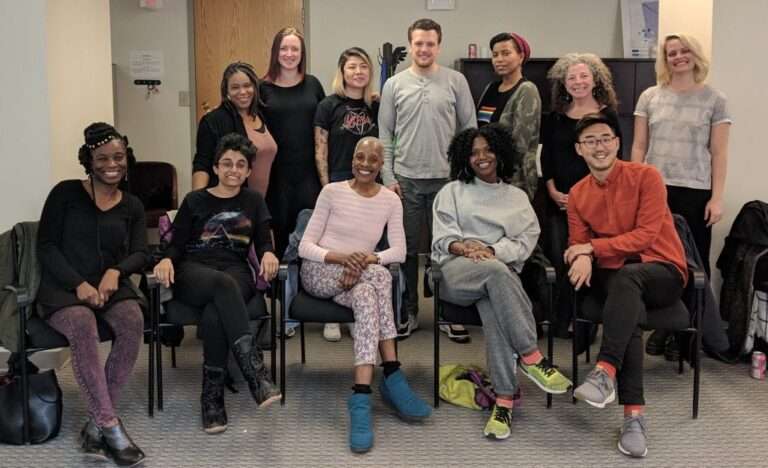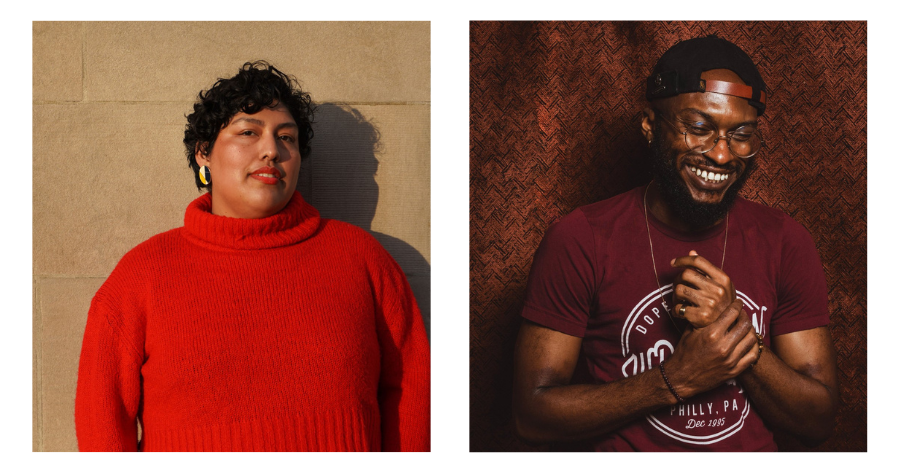We Support Teaching Artists
TIPTA
LIVE IN PHILADELPHIA
"Prior to having the course, I didn’t consider where my students might be prior to entering the classroom. It was a really good education about how to have them feel welcome and safe. You think you have their best interests at heart, but you really have to transfer that, so they feel safe."
TIPTA Teaching Artist

Any artist working in community settings will encounter young people who have been affected by trauma. While teaching artists rarely have details access to a participant’s personal history, there are tools they can use to identify a young person who is potentially trauma-impacted and strategies that they can employ to accommodate and engage that young person.
While this course is being offered virtually so it is accessible anywhere, priority will be given to teaching artists in the Philadelphia region. If you are outside of Philadelphia and interested in opportunities for this training, consider joining an upcoming cohort for our online asynchronous version of the training, or email us to find out about bringing the training to your community.

Co-Facilitators Candy Alexandra González (they/them) & Enoch the Poet (he/him)
Why should Teaching Artists be Trauma-Informed?
Philadelphia and many places across the country are working toward becoming trauma-informed cities in which public policy recognizes and supports young people whose lives are affected by trauma. Trauma can be living in a community with persistent violence, deep poverty, or in any environment that is chronically unstable.
By becoming trauma-informed in your teaching artist practice, you will learn concrete lesson planning strategies to create a supportive environment in which all of your participants can thrive, while also managing your own boundaries and self-care. You will also join our community of over 200 teaching artists who have completed this training.
What you will Learn
- The neurological and psychological nature of trauma.
- How trauma affects the brain, behavior, ability to trust, and ability to forge healthy relationships.
- How trauma can affect self-image, and lead to shame and fear.
- Behavior in students that indicates potential trauma, fear, shame or stress.
- What a trauma-impacted student does (and doesn’t) need to successfully participate and learn in a workshop setting.
- How arts can be healing, and what particular skills can help to heal trauma.
- The signs of secondary or vicarious trauma in themselves or in teaching partners.
- Provide moments of consistency, ritual, and choice-making in their workshop culture.
- When a moment of trauma arises, provide students with a series of options that can help them release and regulate themselves through that moment.
- Adapt their lesson plans into a trauma-informed model.
- Adapt their facilitation practice into a trauma-informed model.
- Responsibly address trauma by creating moments of positivity and healing in their workshops.
- Find moments to guide students through personal reflection about themselves, to help them recognize and acknowledge positive traits.
- Follow a safety plan for themselves and regularly incorporate self-care into their lives.
Timeline
- Apply now
- Application Closes: Friday, March at 14th at 5:00pm EST
- Notification: by March 21st
- Acceptance of Slot: by March 31st
Questions? Email training@bartol.org
Structure of Training
Over the course of five, 4-hour sessions, a cohort of up to 12 teaching artists will deeply engage in rigorous presentations by leaders in trauma-informed practice and its application in a range of artistic disciplines. Participants will be required to complete outside reading and reflection questions and, when possible, test the strategies they are learning in real time in their classrooms.
Teaching Artists must commit to attend all five, 4-hour training sessions to be held via Zoom conferencing from 5:00 – 9:00pm EST on Mondays on April 21, 28, May 5, 12, and 19. Independent work will be assigned from 5 – 5:30pm with live class beginning at 5:30pm each week. It is also suggested that teaching artists complete the independent self-care module after logging off of live class at 8:30pm.
Who is Eligible?
- Teaching artists in all disciplines.
- Strong priority is given to teaching artists in the greater Philadelphia area.
- Track record of at least three years of working with communities affected by trauma in- or out-of-school settings.
- Committed to teaching artist work with young people (K-12) as a significant part of your creative practice.
- Desire to be part of an ongoing learning community of teaching artists.
Your Commitment to Training
- Attend all five, 4-hour training sessions on Mondays, April 21, 28, May 5, 12, and 19, from 5pm – 9pm EST. Class will take place entirely via Zoom video conferencing.
- Prepare pre-work and be ready to contribute to each session to make workshop time efficient.
- Engage in each session with focus, curiosity, and an open mind.
Bartol Foundation Commitment to You
- Convene practitioners in the field as presenters and participants who will bring knowledge and commitment to the training.
- Create an organized, supportive virtual environment for learning including learning materials, screen breaks and follow-up as needed.
- Listen fully to suggestions to improve the training both in real time and for future cohorts.
- Support the ongoing continuation of a learning community at the conclusion of the training, if desired by the participants.
